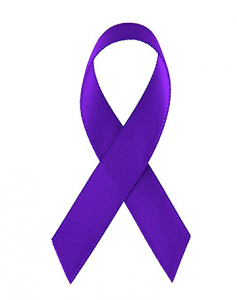 October is Domestic Violence Awareness Month, which is a good reminder that domestic abuse, sexual assault, stalking, and dating violence affect many of our students. In order to better support them, Clark College is developing a training and awareness campaign to help boost the reporting of these crimes and to help connect survivors to resources.
October is Domestic Violence Awareness Month, which is a good reminder that domestic abuse, sexual assault, stalking, and dating violence affect many of our students. In order to better support them, Clark College is developing a training and awareness campaign to help boost the reporting of these crimes and to help connect survivors to resources.
This work has been made possible by a grant from the Department of Justice Office on Violence Against Women. Despite the name of the grant, however, remember that these crimes can hurt people of all genders and orientations.
While most of us are willing to help combat these crimes and support survivors, it can sometimes be difficult to know how to do so. Clark College employees may have questions like, “How do I know if a student is in distress? How do I support them? How do I learn the skills I need to handle these situations effectively?” We’re providing some answers below.
Identifying the signs of a student in distress
Students come to Clark each day with a variety of experiences and challenges in their world outside of the classroom environment. Some easy-to-spot signs that could point to something more going on in a student’s world include: concerning appearance, concerning behavior, and/or concerning comments. These changes can be subtle or drastic. While this is by no means an inclusive list, if you notice changes in hygiene, disruptive behavior, becoming withdrawn or quieter than usual, excessive absence, out-of-proportion reactions, isolation, or references to suicide or self-harm–all of these can indicate a change in the student’s life.
Responding to a student in distress
What should you do if you suspect a student is in distress? Speak with the student privately, expressing concern and a willingness help; listen to what is causing them distress; and support them to find on-campus resources. If a student comes to you to share what is happening in their life, be mindful of the role you play in reporting. At Clark, the only confidential college resources are the counselors and nurse practitioner in the Counseling & Health Center (CHC). To connect a student with a confidential resource, please call CHC at 360-992-2614 to schedule an appointment. If the situation is more urgent than scheduling a future appointment, call Clark College security at 360-992-2133 or Clark County Crisis line at 360-696-9560.
At Clark, you are required to report when you hear about situations a student may be involved in that includes domestic/dating violence, sexual assault, stalking or sexual misconduct. To report instances and connect the student to support on campus, visit the Title IX reporting link here: http://www.clark.edu/about/governance/policies-procedures/title-IX/index.php
Learning skills to help students in distress
As we move into October, we have put together a training series called Safer Campus, Safe Communities spread out over three sessions, descriptions of the sessions and speaking topics are listed below. We hope to see you at one or all of the upcoming training opportunities.
Navigating Conversations with Someone Who is Disclosing Incidents of Domestic Violence or Sexual Assault
Thursday, October 11, 10:00-11:00 a.m., GHL 205
Facilitator: Heather Adams
Being able to connect with students and navigate difficult conversations is an integral part of working on campus. However some conversations can be especially difficult or emotional, such as when a student discloses that they have experienced domestic violence or sexual assault. This session aims to provide attendees with a working knowledge of relevant student conduct policies and guidelines around reporting in order to support students without overstepping professional boundaries. Attendees will learn how to spot signs of students in distress and develop strategies for navigating conversations where someone is disclosing incidents of sexual assault, harassment, or domestic violence.
Minimizing Harassment in Group Work
Tuesday, October 16, 2:00-3:30 p.m., HHL 121
Facilitators: Deena Godwin & Tavish Bell, Clark College
Harassment can impact a student’s ability to learn, feel safe, and often affects their decision of whether or not to continue a class or their academic career. Both anecdotally and in research studies, harassment is known to be a sizable problem in group class activities. This session will discuss common types of harassment in group-work settings and provide practical strategies for how to minimize harassment. Attendees will leave equipped with a working knowledge of relevant student conduct policies and how to report harassment that is happening in both face-to-face and online settings.
Communicating About Harassment and Assault More Effectively Across Generations
Thursday, October 25, 3:00-4:30 p.m., GHL 213
Facilitators: Deena Godwin & Tavish Bell, Clark College
Experiencing domestic violence and/or sexual assault is life-changing and requires support. Support is often needed though difficult to seek out because of the shame and guilt that accompany the experience. Couple that with differences among generations, and communication can be non-existent. This session aims to bridge the gap across generations specifically by discussing strategies for a survivor to seek support and strategies for support people to respond. Attendees will leave having practiced both seeking support and responding to requests of support.
This article was submitted by Tavish Bell.












